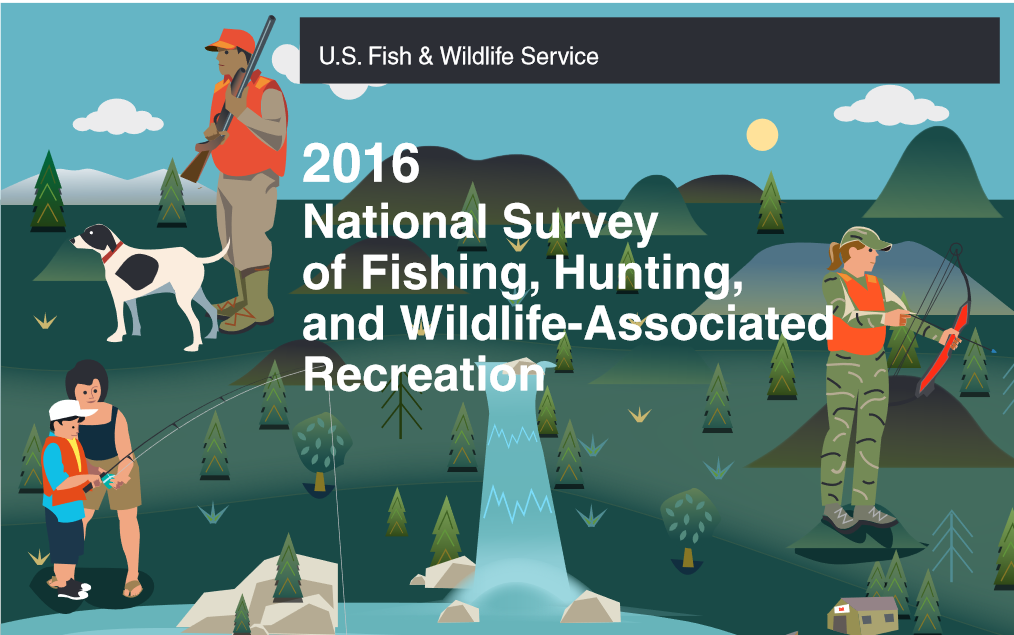
Each year, the US Fish and Widlife Service (hmmm – maybe we could have something a bit like that one day?) produces an analysis of the economic value of hunting, fishing and wildlife watching.
Wildlife-watching is apparently worth almost as much to the economy through expenditure on cameras, bird food, binoculars and travel as are hunting and fishing. That’s quite interesting. It also seems as though wildlife-watching is growing whereas hunting is declining a little in popularity.
I wonder what the equivalent figures would look like in the UK. And I wonder why politicians in the UK don’t bother to measure these things. The list of signatories on the US report looks very impressive – clearly everyone wants to be assoociated with this work.
[registration_form]
This from Visit Scotland https://www.visitscotland.org/binaries/content/assets/dot-org/pdf/research-papers-2/wildlife-topic-paper-2017.pdf
Ah but in the USA hunting is still based on skill and stealth, same with fishing.
They don’t have subordinates to drive the prey towards their guns nor do they have ‘aquariums’ stocked with foreign fish for the sole purposes of being caught.
In my experience going fishing (and I presume hunting)in the USA is much more closer the nature, and less intensively managed.
If we could get shooters and fishing back to the natural balance where if you catch or bag something it is a bonus. In this country it’s all about how many you catch/bag.
Mike – I agree
I think it is somewhat misleading to characterise US hunters as somehow enlightened conservationists and British shooters unscrupulous wildlife destroyers to a man. There is no doubt at all that the US shooting and hunting community includes those who are prepared to shoot protected species on the sly (e.g. wolves), those who are aggressively anti ‘tree-huggers’ (as readers of this blog would be described by such people) and so on. Not all American shooting practices strike me as being particularly skill based or admirable either – how about baiting for bears and sitting in a high seat waiting to pop them off (permitted, I believe, in a number of States)? And finally I am not at all sure that stocked fisheries do not occur in the US. Equally, there are undoubtedly some hunters in this country who have a more enlightened attitude to their ‘sport’.
There are certainly good practices we could adopt and the survey mentioned in the original post is a case in point but it is unrealistic to pretend that the US is some kind of conservation nirvana. Of course at the moment conservation and environmental protection agencies in the US are under tremendous pressure. They are widely disliked by Republicans and under Trump they have been under siege.
You ask “I wonder why politicians in the UK don’t bother to measure these things”
Sadly because too many of them (a) aren’t really interested in the natural environment (b) understand its true value and worth if you accept it’s good for health etc. and probably for those most vociferous at the Halloween debacle (c) it would make uncomfortable reading for some of their pals who own shooting estates.
Wonder who would write our Terms of Reference
Of course there are unscrupulous hunters in the US. However in the main hunting is well regulated and used by the US Fish and Wildlife Service (USFWS) to manage numbers and connect people with nature. Early settlers set about wiping out the wildlife they found there with great gusto. Of course many came from the UK where even back then wiping out wildlife was a well established practice. The Federal Government assisted by our own John Muir realised before it was too late the folly of allowing that to happen. Now much of the land is in public ownership and managed by a very effective national agency (USFWS). In the main people value and protect their wildlife. They generally life in harmony with it including venomous snakes and large carnivores such as bears, big cats and alligators. I would say that we could learn an awful lot from the US in terms of reconnecting with nature and reversing the destruction that we have caused and continue to cause to our own natural heritage.
David – I agree.